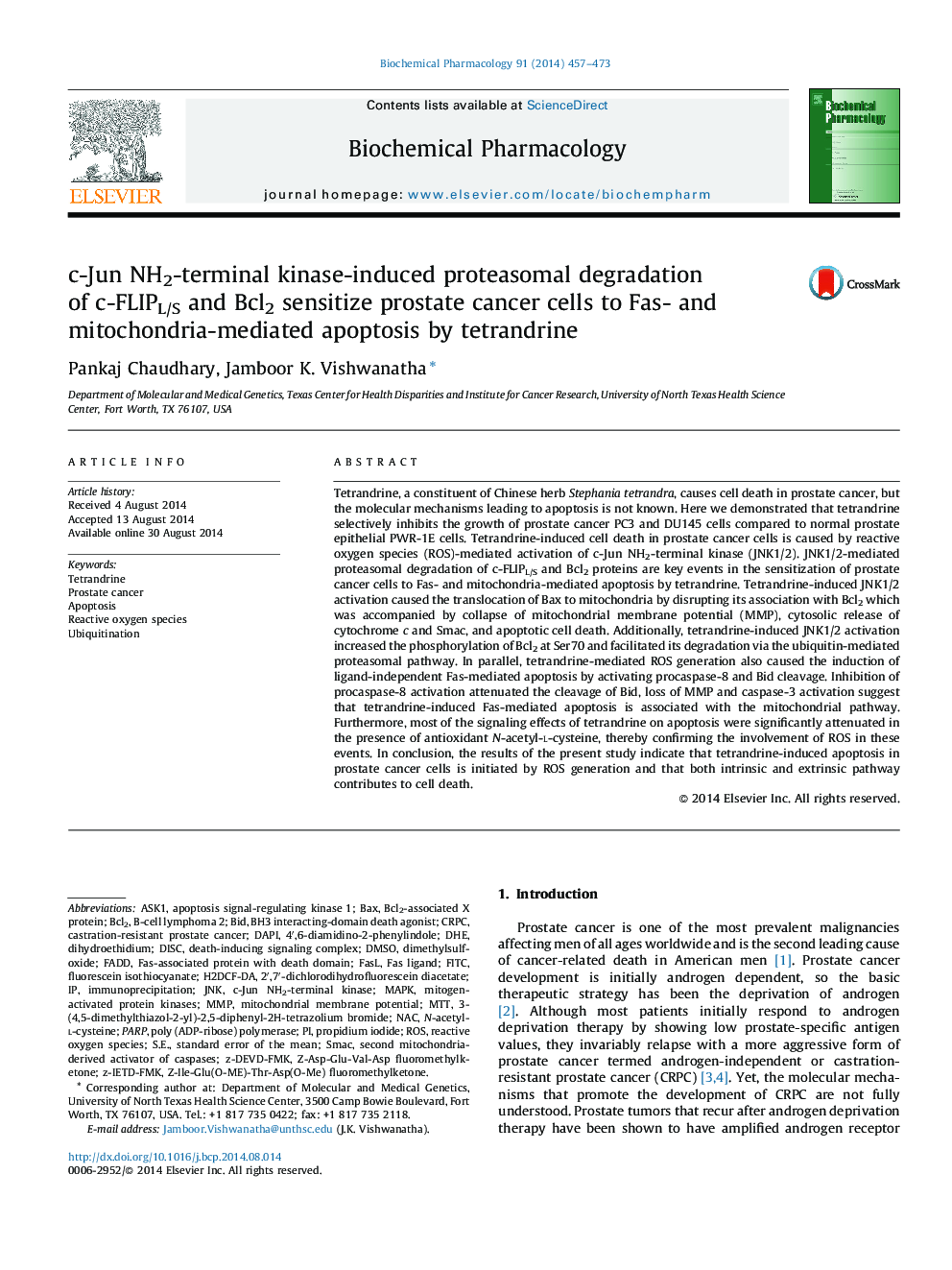| کد مقاله | کد نشریه | سال انتشار | مقاله انگلیسی | نسخه تمام متن |
|---|---|---|---|---|
| 2512174 | 1118321 | 2014 | 17 صفحه PDF | دانلود رایگان |

Tetrandrine, a constituent of Chinese herb Stephania tetrandra, causes cell death in prostate cancer, but the molecular mechanisms leading to apoptosis is not known. Here we demonstrated that tetrandrine selectively inhibits the growth of prostate cancer PC3 and DU145 cells compared to normal prostate epithelial PWR-1E cells. Tetrandrine-induced cell death in prostate cancer cells is caused by reactive oxygen species (ROS)-mediated activation of c-Jun NH2-terminal kinase (JNK1/2). JNK1/2-mediated proteasomal degradation of c-FLIPL/S and Bcl2 proteins are key events in the sensitization of prostate cancer cells to Fas- and mitochondria-mediated apoptosis by tetrandrine. Tetrandrine-induced JNK1/2 activation caused the translocation of Bax to mitochondria by disrupting its association with Bcl2 which was accompanied by collapse of mitochondrial membrane potential (MMP), cytosolic release of cytochrome c and Smac, and apoptotic cell death. Additionally, tetrandrine-induced JNK1/2 activation increased the phosphorylation of Bcl2 at Ser70 and facilitated its degradation via the ubiquitin-mediated proteasomal pathway. In parallel, tetrandrine-mediated ROS generation also caused the induction of ligand-independent Fas-mediated apoptosis by activating procaspase-8 and Bid cleavage. Inhibition of procaspase-8 activation attenuated the cleavage of Bid, loss of MMP and caspase-3 activation suggest that tetrandrine-induced Fas-mediated apoptosis is associated with the mitochondrial pathway. Furthermore, most of the signaling effects of tetrandrine on apoptosis were significantly attenuated in the presence of antioxidant N-acetyl-l-cysteine, thereby confirming the involvement of ROS in these events. In conclusion, the results of the present study indicate that tetrandrine-induced apoptosis in prostate cancer cells is initiated by ROS generation and that both intrinsic and extrinsic pathway contributes to cell death.
Figure optionsDownload as PowerPoint slide
Journal: Biochemical Pharmacology - Volume 91, Issue 4, 15 October 2014, Pages 457–473